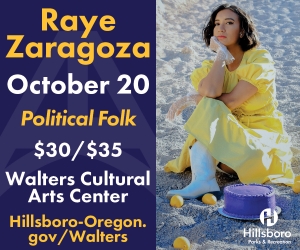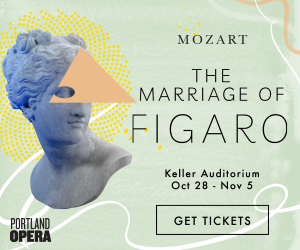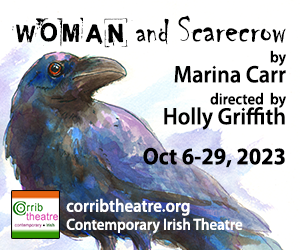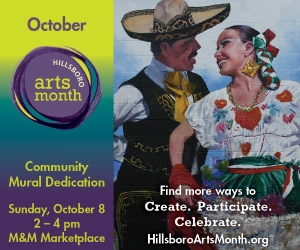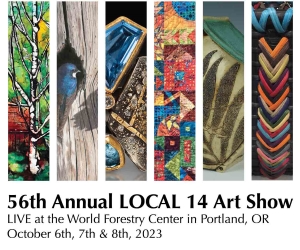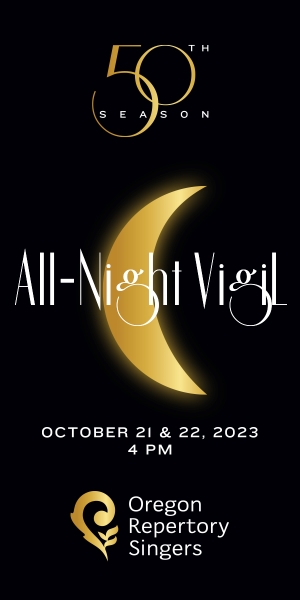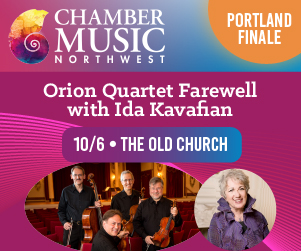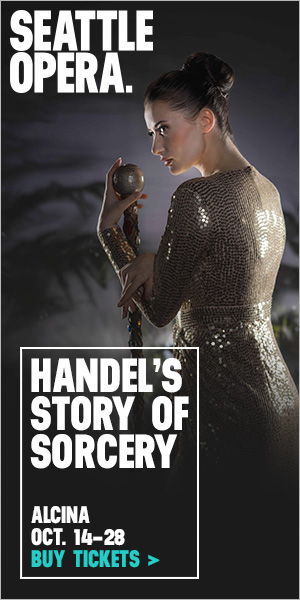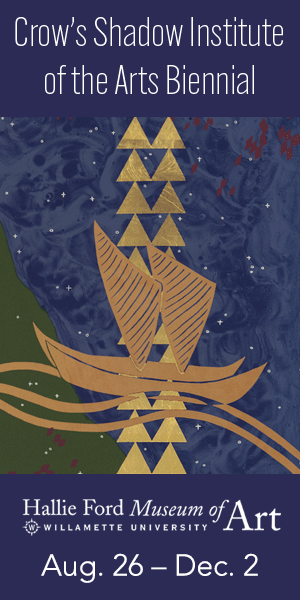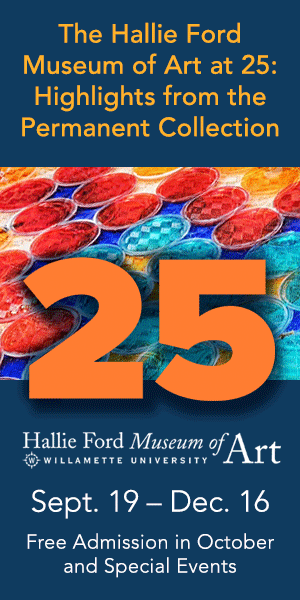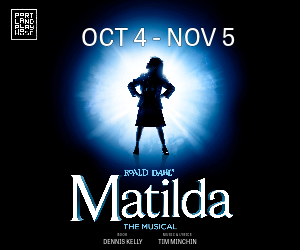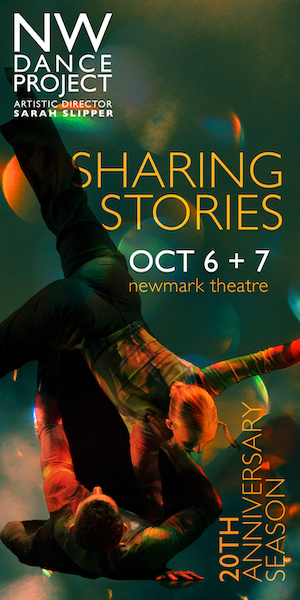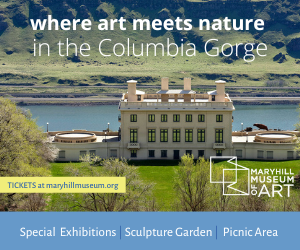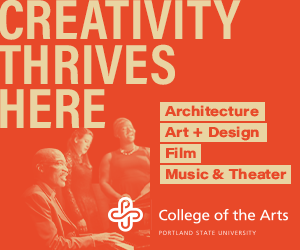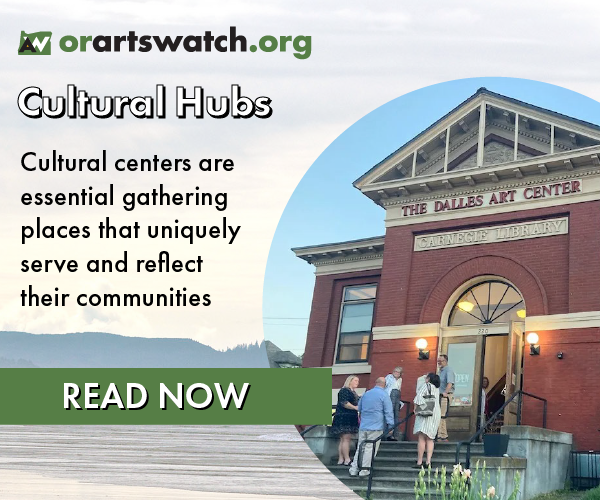
Ling Ling Huang said the Third Angle New Music Listening Lab on September 9th at Bowstring Truss House in Portland was “the most ‘me’ thing I have ever done.” That is, she was the star of the afternoon, and all thirty-or-so pairs of eyes and ears in attendance were there to hear her discuss her musical and literary journey. It can be so easy to treat successful musicians as heroes and gods, while they are (for the most part) just normal people like us. Huang arrived not in the formal wear of her professional headshots, but in patchwork cargo pants and New Balance sneakers, as if she was on her way to a studio workshop instead of a concert. Her husband was in the front row as a conscientious attendee as well.
Portland author Katherine Dunn once remarked that every Portlander lives three lives. Dunn didn’t specify if these lives are lived simultaneously or consecutively, or where these boundaries are between one life and the next. Ling Ling Huang is already living two of her lives, as a novelist who gets reviewed in the New York Times, and as a concert violinist. She moved here last year after spending her career in New York, Cleveland and Houston, making her one of many artists seeking out Portland’s artistic culture, temperate weather and comparatively cheaper rents when compared to LA, NYC or SF.
Over the course of the hour-long show Huang shared some of her musical journey thus far. She discussed and played for us selections from Beethoven’s Violin Concerto in D Major and Kreutzer sonata, Debussy’s brief Violin Sonata, the underrated Myths by modernist Polish composer Karol Szymanowski, Prokofiev’s Cinderella Ballet, and Lou Harrison’s Varied Trio. She also discussed her poetry, her approach to writing and the connections between music and words. She described music as “language beneath language,” and a pathway to a “more primitive way of thinking.”

Huang’s literary talents grew alongside her musical talents. Her approach to music-and-words started with her creative approach to program notes at conservatory. Writing program notes is one of the more forgettable parts of being in music school, so Huang’s approach was more novel, replacing the fairly dry descriptions of the composer’s life and an interpretation of the work with a collection of poems and short stories inspired by the wordless music. For instance she compares the opening of that Debussy sonata to the opening of Woolf’s Mrs Dalloway. It is unfortunately rare to see multi-genre talents in classical music, which she said was due to musicians at school being so invested in music that they feel like they cannot express themselves in other ways. Huang’s work lets the music and the words stand on its own as a complete work while creating new sensations by their interactions. They exist in a bounded system: separate entities that form a new whole.
Her novel Natural Beauty gets labeled as a horror novel by the press (and even the publisher’s own website), which surprised Huang. If it is indeed a horror novel it is among the most grounded. There are no scary monsters that symbolize trauma or existential fears, nor dark corridors hiding a terrible secret. Natural Beauty is about the horror that many women of color face every day in this country: the fear of being or becoming the dreaded Other, the fear of violence from hostile men, the fear of losing one’s personhood and becoming a body without a soul. We look away because it reminds us of how close its terrible reality is to our own.
One thing Huang mentioned–then quickly elided–was Natural Beauty’s criticisms of classical music. It can be a difficult world to break into that requires more than simply hard work, talent and creativity. It is necessary for most to meet the right people and possess more than enough luck–and some are luckier than others. For women, for people of color, and especially for women of color, the hierarchies of the classical music world can be condescendingly encouraging at best and outright hostile at worst. Recent stories about the composition department at Juilliard are an indication of what many women in our field have to face. There can be a dark underside to classical music under the surface of elite culture. I am eager to see what an upcoming television adaptation with Constance Wu does with the text.
Ling Ling Huang ended her show with some open improvisation to poetry provided by the audience, along with poet-pianist Ruta Marija Kuzmickas and saxophonist and Third Angle Communications Manager Will Pyle. My partner Madeline brought a poem by Lawrence Matsuda, a pointed and angry admonishment towards “real Americans” and their ignorance towards Japanese-American citizens who were incarcerated in prison camps by the Roosevelt administration during WWII. The next one was a poem by Kuzmickas herself. Their improvisations, while similar in terms of key and texture, brought different emotional responses to their respective poems: the accompaniment to Matsuda was dark and tense, with Huang’s violin weeping from its highest register, while Kuzmickas’ poem led to a more lyrical and tender performance.









